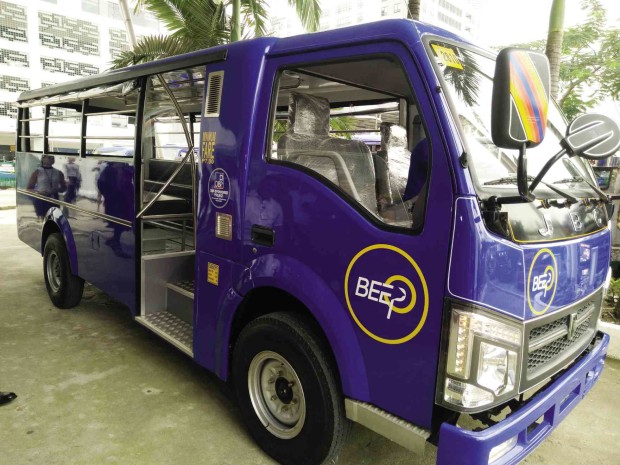Beep! Beep! What phaseout? Pinoy Jeepney keeps evolving
All that talk about the need to phase out the jeepney just can’t stop the King of Philippine Roads from evolving.
A modernized, technologically enhanced fleet of passenger jeepneys will soon hit the streets, starting in Quezon City and Marikina.
The new units called BEEPs—or Bagong Jeeps— were officially turned over to their operators on Wednesday under an initiative led by transport group Kilusan sa Pagbabago ng Industriya ng Transportasyon (Kapit) and 1-Transport Equipment Aggregator and Management Inc. (1-Team).
Costing P1 million to P1.5 million per unit, the bright blue BEEPs were acquired by their new owners through a loan from the Development Bank of the Philippines, which can be paid back in seven years.
The new owners are giving up their old vehicles.
Kapit chair Vigor Mendoza III said a 24-seater BEEP can service as many as 600 passengers a day, compared to current models that can carry only half that number.
They are also considered energy efficient thanks to engines that meet European standard and have passed smoke emission tests with a grade of 0.58 to 1.74, well above the passing mark of 2.5.
Drivers part of the change
Not just the jeepneys have undergone a makeover, but their drivers who will also be required to pass medical, drug and psychological tests, and attend weekly seminars with their operators.
“Some drivers today go around shirtless or even smoke (behind the wheel),” Mendoza noted. “That perception and attitude will now change.”
Passenger assistance
The BEEPs, which have undergone tests since September 2014, also feature a GPS tracking device, a dashboard camera and CCTV cameras.
The jeepney will also have a “passenger assistance officer” onboard.
They will charge a minimum fare of P7. An automated fare collection system is also being considered.
Mendoza said 1,000 more BEEPs are expected to be in the metro in the next six months.
The target is to have 10,000 units nationwide in the next three years, the Kapit chair he told the Inquirer.
